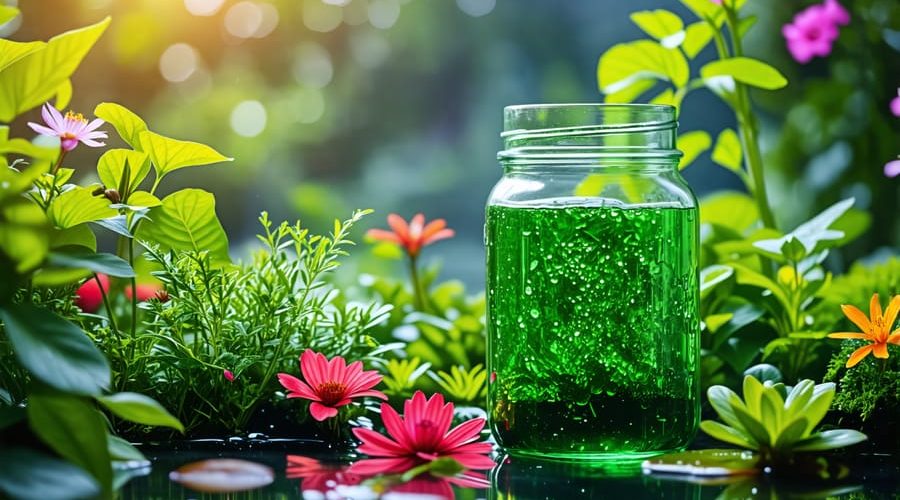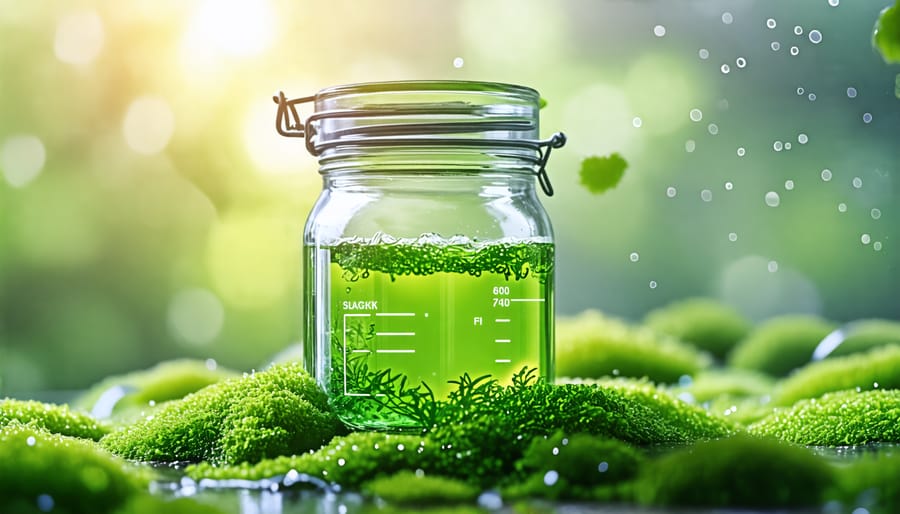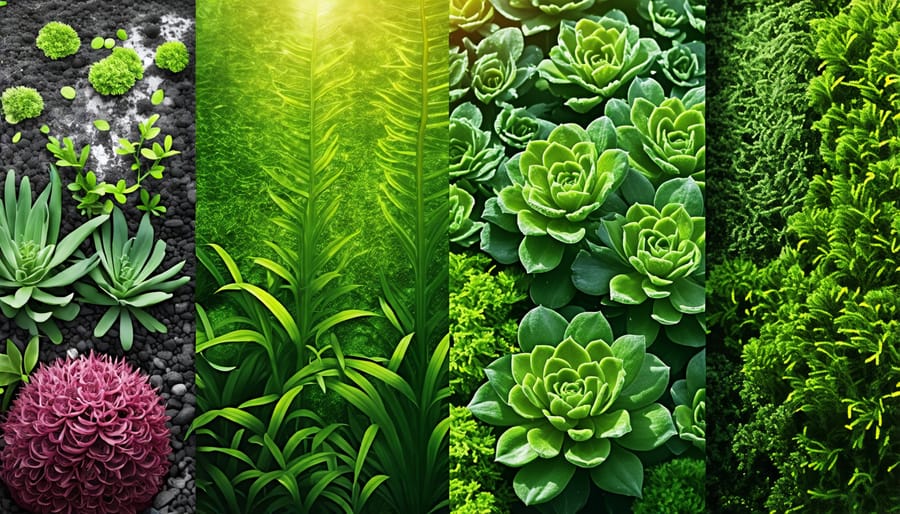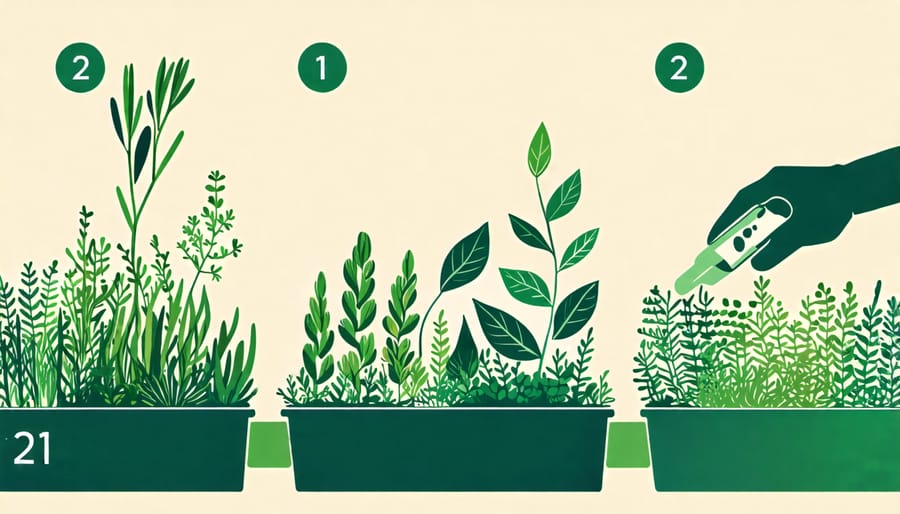
Algae Water Magic: The Secret Superfood for Your Garden
Harness the power of algae-rich water to supercharge your plants’ growth and vitality. This often overlooked resource, straight from your pond or aquarium, is brimming with essential nutrients that can transform your garden. Discover how this all-natural, eco-friendly fertilizer can work wonders for your plants, from boosting foliage to enhancing bloom production. Dive into the science behind algae water’s remarkable benefits and learn practical tips for using it effectively. Whether you’re a seasoned green thumb or a curious beginner, unlocking the secrets of algae water can take your gardening game to the next level. Get ready to witness your plants thrive like never before!
What is Algae Water?
Algae water, also known as pond water or aquarium water, is a nutrient-rich liquid that can be highly beneficial for plants. This water is typically sourced from ponds, water gardens, or aquariums where it comes from the natural growth and decomposition of various aquatic plants, fish waste, and other organic matter. As these elements break down, they release essential nutrients into the water, creating a potent, organic fertilizer.
The key components that make algae water so valuable for plants include nitrogen, phosphorus, and potassium, which are the primary macronutrients essential for plant growth and development. Algae water also contains trace elements such as iron, magnesium, and calcium, which contribute to healthy foliage, strong roots, and overall plant vitality. Additionally, the water may contain beneficial microorganisms that can help improve soil structure and plant resilience.
By using algae water as a natural fertilizer, gardeners can harness the power of these nutrients to promote lush, vibrant growth in their plants while reducing the need for synthetic fertilizers. Whether you have a pond, aquarium, or water garden, the nutrient-rich water it produces can be a valuable resource for nourishing your plants and enhancing your outdoor space.

Benefits of Algae Water for Plants

Essential Nutrients
Algae water is rich in essential nutrients that plants need to thrive. One of the primary nutrients found in algae water is nitrogen, which is crucial for healthy leaf growth and chlorophyll production. Phosphorus is another key nutrient that supports root development and flower formation. Potassium, also present in algae water, helps plants build strong stems and increases their resistance to disease and stress.
In addition to these macronutrients, algae water contains a variety of micronutrients that are essential for optimal plant growth. These include iron, which is necessary for chlorophyll synthesis, and magnesium, which plays a vital role in photosynthesis. Calcium, another micronutrient found in algae water, helps build strong cell walls and promotes overall plant health.
Trace elements such as boron, zinc, and manganese are also present in algae water. These nutrients, although required in smaller quantities, are essential for various plant functions, including enzyme activation, growth regulation, and disease resistance. By using algae water as a natural fertilizer, you can provide your plants with a well-balanced mix of nutrients that they need to flourish, without relying on synthetic fertilizers that may harm the environment.
Growth Stimulation
Algae water is brimming with essential nutrients and growth-promoting compounds that can work wonders for your plants. As algae grow, they absorb and concentrate nutrients from the water, creating a potent, natural fertilizer. Nitrogen, phosphorus, and potassium – the three main components of commercial fertilizers – are abundant in algae water. These macronutrients play crucial roles in foliage growth, root development, and overall plant health. Micronutrients like iron, magnesium, and calcium are also present, supporting various plant functions and preventing deficiencies.
But the benefits don’t stop there! Algae water also contains auxins and cytokinins, natural plant hormones that stimulate cell division and elongation. These growth regulators can lead to bushier, more vigorous plants with denser foliage. The organic matter in algae water helps improve soil structure, moisture retention, and beneficial microbial activity in the root zone. With regular application, your plants will thrive, displaying lush growth and vibrant colors. Whether you’re tending to a vegetable garden, flower beds, or potted plants, algae water is a cost-effective and eco-friendly way to give them the nourishment they need to flourish.

How to Use Algae Water in Your Garden
Here’s a step-by-step guide on how to harness the power of algae water in your garden:
1. Identify a pond, aquarium, or water feature with healthy green algae growth. Avoid any water sources that may contain harmful contaminants or chemicals.
2. Using a fine mesh net or a clean bucket, gently scoop the algae-rich water from the surface. Be careful not to disturb the ecosystem too much or remove any aquatic creatures in the process. If collecting algae water from an aquarium, ensure you leave enough for the tank’s inhabitants.
3. Pour the collected water through a fine strainer or cheesecloth to remove any debris or unwanted particles. This will leave you with a concentrated, nutrient-dense liquid.
4. Dilute the strained algae water with fresh water at a ratio of 1:10 (one part algae water to ten parts fresh water). This helps prevent any potential nutrient burn or shock to your plants.
5. Apply the diluted algae water to your garden plants, either as a foliar spray or by watering the soil around the base of the plants. For best results, use the solution early in the morning or later in the evening to minimize evaporation.
6. Repeat the application once a week, or as needed, depending on your plants’ growth and health. Monitor your plants closely for any signs of nutrient deficiencies or overload, and adjust the frequency and dilution accordingly.
7. As an optional step, you can add the remaining algae solids from the strainer to your compost pile. This will further enrich your garden soil with organic matter and nutrients.
Tips for optimal use:
– Always test the algae water on a small portion of your plants first to ensure compatibility and avoid any adverse reactions.
– Be consistent with your applications, as the benefits of algae water are best seen over time with regular use.
– Combine algae water with other organic gardening practices, such as composting and mulching, for a holistic approach to plant care.
– If you don’t have access to a natural algae source, you can purchase liquid algae fertilizers from gardening stores or online retailers.
By following these simple steps and tips, you’ll be well on your way to nurturing a thriving, vibrant garden with the incredible benefits of algae water. Happy gardening!
Precautions and Potential Drawbacks
While using algae water can be a fantastic organic fertilizer for your plants, there are a few precautions to keep in mind. First and foremost, always make sure the algae water you’re using comes from a healthy source. Avoid using water from ponds or aquariums with known diseases or parasites, as this could potentially harm your plants.
Another thing to watch out for is the odor. Algae water can sometimes have a strong, unpleasant smell, especially if it’s been sitting stagnant for a while. If the odor is particularly pungent, it’s best to dilute the algae water further or avoid using it altogether, as this could indicate the presence of harmful bacteria.
It’s also important to strain out any solid pieces of algae or debris before using the water on your plants. These chunks can attract pests or start to rot, which can damage your plants’ roots and lead to fungal growth.
When introducing algae water to your plants for the first time, start with a small amount and monitor your plants closely for any adverse reactions. Some plants may be more sensitive than others, so it’s best to err on the side of caution.
Lastly, while algae water can be a great supplement to your plants’ regular fertilizing routine, it shouldn’t be used as a complete replacement. Plants still need a balanced diet of nutrients, so make sure to provide them with a variety of fertilizers and soil amendments.
By taking these precautions and being mindful of the potential drawbacks, you can safely and effectively use algae water to give your plants a nutrient boost. Just remember, when it comes to using any organic material in your garden, it’s always best to start small, monitor closely, and be on the lookout for any risk of introducing unwanted organisms.
Conclusion
In conclusion, algae water is a natural, sustainable, and nutrient-rich fertilizer that can help your plants thrive. Its unique blend of micronutrients, growth hormones, and beneficial bacteria make it an excellent addition to any gardener’s toolkit. Whether you have a pond, aquarium, or water feature, you can easily harness the power of algae water to promote healthy plant growth and vibrant foliage. By following the simple steps outlined in this article, you can create your own algae water fertilizer and give your plants the boost they need. So why not give it a try? Your garden will thank you for it! With a little experimentation and patience, you may just discover that algae water is the secret ingredient your plants have been craving all along. Happy gardening!
